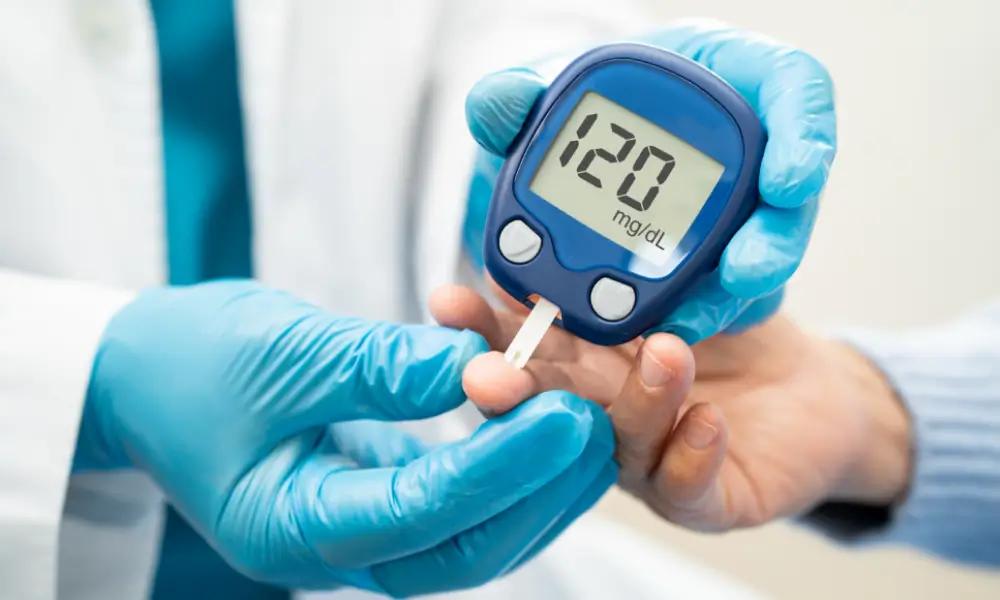10 Habits for Managing Diabetes and Lowering HIGH Blood Sugar; Seek Medical Advice

When you have diabetes, managing your blood sugar is paramount for a healthy life. With dedication and proper guidance from a doctor, you can successfully lower your HIGH blood sugar and manage your diabetes. Here are 10 everyday practices you can use to help lower your HIGH blood sugar levels and manage diabetes.
1. Understand the Basics of Diabetes:
Diabetes is a chronic condition that affects your body's ability to process glucose or blood sugar. If left untreated, diabetes can lead to serious health complications such as heart disease, stroke, and kidney failure. It is important to understand the basics of diabetes and its effects on your body to manage it properly.
2. Diet and Exercise:
A healthy diet and regular exercise are essential for managing diabetes. Eating foods that are low in fat and calories helps keep your blood sugar levels under control. Incorporating physical activity into your daily routine helps your body use insulin more effectively and also reduces stress levels which can help reduce high blood sugar levels.
3. Stress Management Techniques:
High-stress levels can affect your blood glucose levels, so it is important to learn how to reduce stress in healthy ways. Practicing relaxation techniques such as yoga, meditation, or deep breathing can help lower both stress and blood sugar levels. Additionally, getting adequate sleep will also help you manage your diabetes better by keeping hormone levels balanced and maintaining a healthy weight.
4. Medication Adherence:
Taking medications as prescribed by a healthcare provider is essential for managing diabetes effectively. It is important to understand the side effects of any medications you may be taking as well as when to contact a healthcare provider with questions or concerns about medication usage or dosage adjustments that may be necessary over time due to changing health conditions or other factors related to lifestyle changes such as diet or exercise habits.
5. Blood Glucose Monitoring:
Monitoring your blood glucose levels is an important part of diabetes management and allows you to adjust treatment plans according to how high or low levels may be at certain times throughout the day/week/month/year etc. Technology has made this task easier than ever; however traditional methods such as logs and charts should still be used for tracking purposes if accessible and affordable for you otherwise! Also, remember that carb counting plays an important role in helping manage glucose levels so make sure you are aware of the impact different meals have on those numbers too!
6. Communication with Healthcare Providers:
Talking openly with your healthcare provider about treatment plans, lifestyle changes, medications, etc., is key for the successful management of diabetes over time. Make sure you keep them up-to-date with any changes that may occur for them best assist you with achieving optimal results!
7. Diabetes Support Groups & Resources:
Support groups provide valuable insight from people who have gone through similar situations, plus they can offer guidance outside of what medical professionals can provide which makes them very beneficial when managing diabetes long-term. Also, there are many resources available online, via phone hotlines, and even in-person support events which allow diabetics access the information they need quickly without worrying about “keeping up” with everything constantly!
8. Alternative Therapies & Complementary Medicine:
If considering exploring alternative therapies as a part treatment plan (e. g acupressure) it’s important to weigh the pros/cons before making a final decision. A doctor should always consult before implementing any type of therapy so make sure to communicate any changes in plans clearly to prevent unwanted consequences!
9. Mental Health & Stress Management:
Mental health affects overall well-being so maintaining a positive attitude toward life goes long way when managing conditions such as type 1 / 2 diabetes! Additionally, finding outlets that work best to release tension like hobbies playing sports, etc. all beneficial in reducing stress ultimately leading to a healthier lifestyle.
10. Seek Guidance from a Doctor:
Before taking any steps to lower your blood sugar, you should seek guidance from an experienced doctor who has experience managing diabetes. When seeking professional advice, make sure to ask questions regarding treatments that could work best for your condition as well as any lifestyle changes you can incorporate into your daily routine that will help manage diabetes better.

Conclusion
Managing diabetes can be overwhelming but by following these everyday practices you can effectively lower high blood sugar levels and stay healthy - however, it's always advisable to seek guidance from an experienced doctor before doing anything else! By understanding how food habits influence blood glucose levels, incorporating regular exercise into routines along with stress management strategies, etc., individuals with diabetes have the power within them to improve their health outcomes overall!






